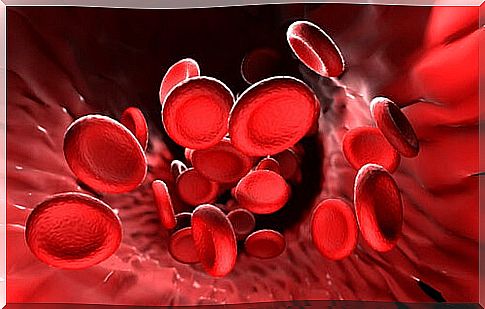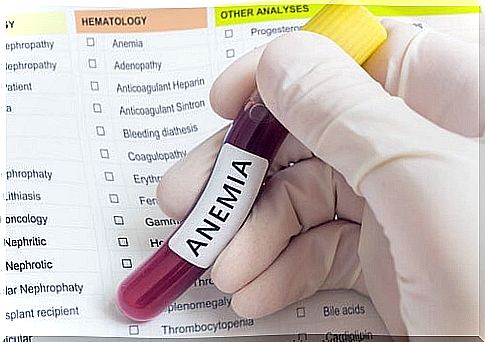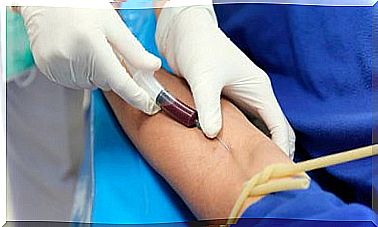The Consequences Of A Lack Of Iron
There are many consequences of a lack of iron that we may not relate to it, such as hair loss, bad mood or extreme fatigue

The lack of iron has anemia as its most important marker, according to this study carried out by the Ramón y Cajal Hospital (Madrid), although this problem has more consequences that are worth knowing.
If you think you may be consuming less of this nutrient, we recommend that you pay attention to the following symptoms and the consequences that a lack of iron could have.
Iron deficiency is a global problem

Millions of people suffer from deficiencies of this nutrient, mainly in developing countries and Western Europe, mainly due to inefficient consumption.
Therefore, we should not underestimate the lack of iron, as it has dire consequences for our health.
What are the characteristics of iron?
Among its many functions, this element allows hemoglobin to function correctly and provide oxygen to all cells.
Iron is essential for health and, as it is found in low amounts in our body, it is necessary to obtain it through food and, above all, through a balanced and varied diet.
We can group iron into two types:
- The first is heme, of animal origin and which is easily absorbed.
- The second is the non – heme, which is of plant origin and whose absorption is less. For this reason, many vegetarians or vegans with unstructured diets or those prescribed by specialists suffer from anemia.
Also, other tasks of iron consist of:
- Participate in the production of substances in the blood.
- Intervene in the synthesis of DNA.
- Be part of the cellular respiration process.
- Help in the maintenance of the immune system.
As if all this were not enough, this component also participates in many chemical reactions and is vital in the production and release of energy.
How do I know if I am deficient in iron?
To find out if we have insufficient iron, we can take a blood test. Based on information obtained from Chemocare, the values should be as follows:
- Normal values in adult men range from 50 to 160 ug / dl.
- In adult women, 40 to 150 ug / dl.
- On the other hand, in children the values must be between 50 and 120 ug / dl.
- Finally, in babies under 1 year of age, the range is between 100 and 250 ug / dl.
If, on the contrary, the levels are higher than the average, it may be due to diseases such as:
- Hemochromatosis
- Hepatitis
- Hemolytic anemia
- Iron poisoning.
Similarly, we must bear in mind that in some specific circumstances the values may decrease, such as:
- Pregnancy. According to this research carried out by the Ministry of Health of the Province of Buenos Aires-La Plata, anemia during pregnancy could be related to an increased risk of complications before and during delivery.
- Malnutrition.
- Cancer. This is stated in this study carried out by the National Institute of Neoplastic Diseases of Peru.
- Chronic blood loss.
- Chronic hypermenorrhea (very heavy menstrual bleeding).
Consequences of a lack of iron

We can pay attention to certain signals that the body sends to alert us that this essential nutrient is lacking.
If you suffer from several of these symptoms, it would be good to see a doctor and take a blood test:
1. Weakness and tiredness
Regardless of the hours you sleep or the times of day when you rest, you are usually listless and without strength or you have a hard time getting up in the morning and you fall asleep anywhere.
Beyond the demands of our day to day, this weakness or fatigue can also be due to a lack of iron, since this element allows the transport of oxygen in the cells. If it is missing, the tissues do not receive “fuel” and our functioning fails.
Lower vitality and extreme fatigue from low-impact activities may be related to iron deficiency, according to information obtained by the National Heart, Lung, and Blood Institute of the United States.
2. Poor performance and bad mood

The shortage of this nutrient can directly affect our emotional states and make us overly irritable, depressed or in a bad mood.
This is due to fatigue, so the consequence is understandable: problems performing at work, in study or in normal tasks.
So, pay attention if lately “everything is going badly for you” and you can’t focus on your activities.
Iron deficiency can negatively influence memory and attention, according to this research carried out by the Hospital Infantil de México Federico Gómez. Everything you try to do could cost you twice as much effort, quickly losing motivation even with tasks that you enjoy.
3. Paleness
When you have anemia, your skin is likely to be paler or whiter than usual, as stated in this study carried out by the Dos de Mayo National Hospital in Lima (Peru).
This is because both the dermis and the mucous membranes are tissues that are not receiving enough oxygen.
Some people may even have a whitish color under the eyes (where the eyelashes are born).
4. Dizziness and nausea

One of the consequences of a lack of iron and a deficit in the amount of oxygen that cells receive is to feel continuously dizzy.
On the other hand, according to this study carried out by the Pereira Rosell Hospital Center, you may experience the sensation of lack of air when trying to breathe and that inhalations are faster and more frequent (polypnea)
In more severe cases, people who do not consume sufficient amounts of this nutrient may faint or faint at any time of the day, have ringing in the ears, or suffer from lipothymia.
5. Palpitations
The rapid heartbeat, which occurs when we are not doing any effort or exercise, can be related to a ferrous deficiency in some cases:
- When blood is not circulating in good condition, the heart system must make greater efforts to pump it back to each organ. The variability of the heart rate could be due to this, according to this study carried out by the Yuzunci Yil University (Turkey).
- Tachycardias, arrhythmias and even acute myocardial infarction could even appear.
6. Nail fragility and hair loss
When the nails break easily, have little thickness or white marks are seen near the cuticle, it may be due to a lack of iron.
In the case of hair loss or weakness, it may be due to the fact that the blood reaches the head with little oxygenation and does not nourish the hair follicles, according to this study carried out by the Teaching Polyclinic ?? Ramón López Peña ??, in Santiago de Cuba.
The lack of iron is an important problem for our body, so it is necessary to know if we have a lack of iron and what we can do to try to improve it.









